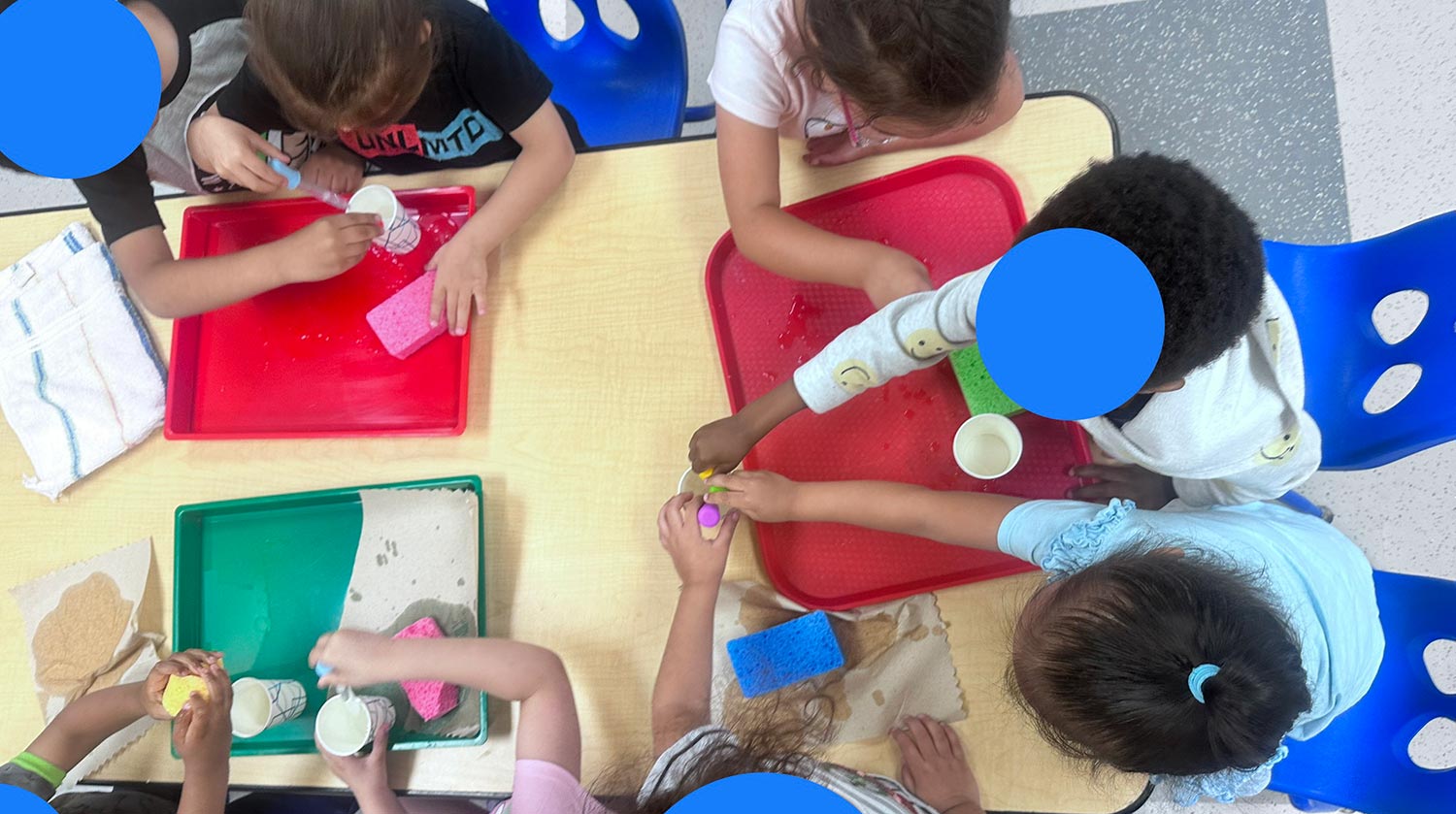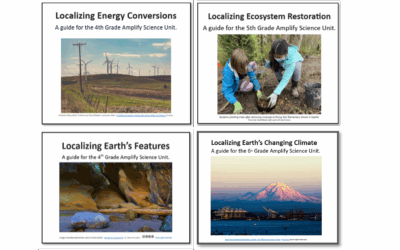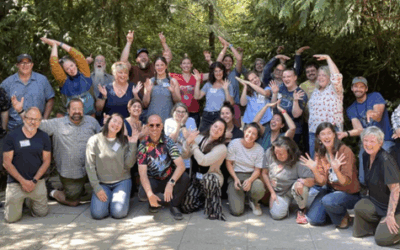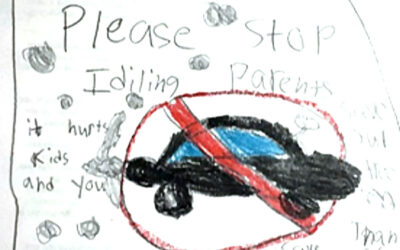In the spring of 2023, 18 educators and administrators from community early learning centers in the Puget Sound area and the Issaquah School District participated in the I am a Scientist!
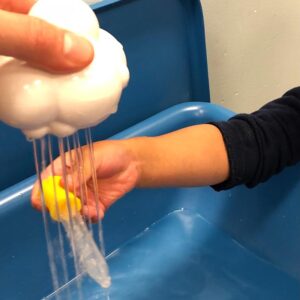
Exploring Rain
ClimeTime Early Learning Workshop Series, impacting 150-200 students and their families. The series (three 90-minute Zoom workshops) focused on building skills in providing appropriate science learning experiences for young children, helping children identify themselves as scientists, embedding science into routines and transitions, integrating science into math and literacy and engaging families in science learning at home. At the end of the series, participants described the connections between science learning and early learning. Here are some reflections:
“There are many natural and playful ways to expose children to scientific vocabulary and experiences.”
“We can guide students through scientific investigations and build vocabulary through everyday experiences. It was great to see how to embed science into different parts of the day.”
“You can use science in everything and not just during class time, but also at recess and lunch, helping them stay engaged.”
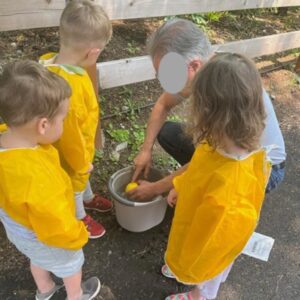
Exploring Water Outdoors
Participants received six whole and small group lessons for preschoolers which also included extension activities for math and literacy, outdoor activities, snack time, routines, center time and family engagement around the phenomenon of what happens to rain when it falls. Teachers and administrators acknowledged that rain was a great topic to explore with children; “Rain is an amazing resource to teach children about science, math, art, music, and literacy,” and “Learning about water is huge because it’s everywhere, outside, school, and at their home.” Some participants concluded they would add a science section to family newsletters where they would share what they are learning, science vocabulary, and provide specific questions that families could ask their children.
These early learning educators implemented lessons, extension activities, and other related science activities they developed in-between the three workshops. Along with the lessons, they received materials to use in the classroom, including magnifying glasses, Plui Rain Toys, mini-colanders, pipettes, clipboards, sponges, song posters, children’s journal template, and a children’s book reading list.
The workshops included discussions of big ideas for science learning, vocabulary, and cross-cutting concepts. Participants shared they appreciated the lessons and materials and enjoyed the opportunity to get to know other educators, collaborate, and explore ideas with one another. Overall, it was a positive experience for everyone involved and participants were empowered to provide meaningful science experiences for children throughout the day. One participant closed with, “My biggest takeaway was making sure students knew that they are scientists and what that means.”

